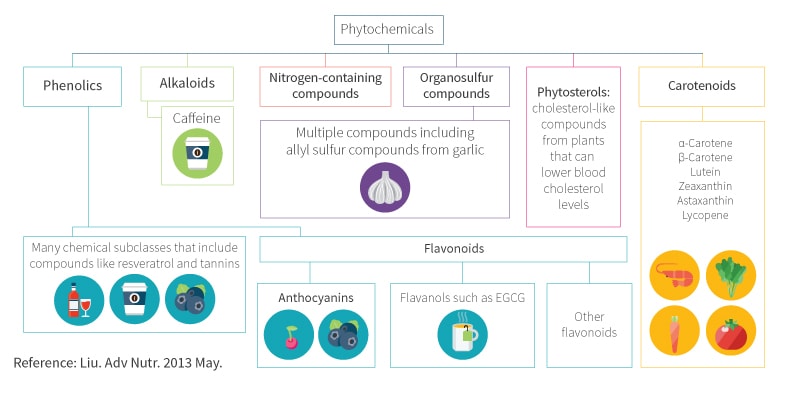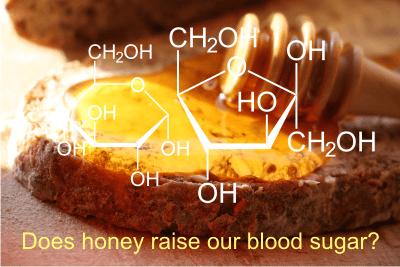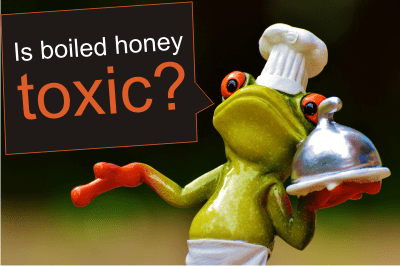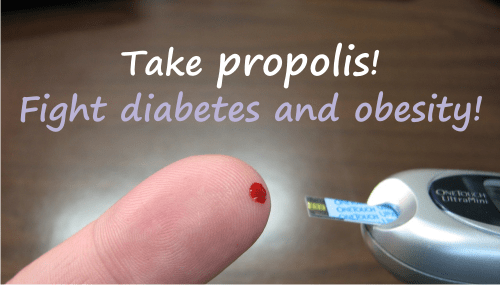Does honey raise blood sugar? – a question often put, but not by diabetics. Allopathic doctors tell them honey is sugar and is out of the question. Nevertheless studies showed that honey consumption reduces metabolic stress thus reducing the risks for many of the diseases and conditions associated with the metabolic syndrome, including obesity, diabetes, and cardiovascular disease.
Sugar is the #1 enemy of humanity. We all know this. It’s pleasant, it gives energy and is addictive. Many doctors compare it to cocaine. But unlike it, a person cannot completely give up on it. He is not allowed to.
50 years ago, along the development of technology and huge changes in our life style, some modern diseases appeared: depression, allergies, food malabsorption, insulin resistance, metabolic syndrome, diabetes, cancer and so many others.
What triggered their appearance? Stress and diet change.
Stress remains at the bases of all disorders. It was proved that living completely relaxed and having a diet based of almost nothing else but nettle broth, can lead to a lifespan of 90 years.
Today we need to live under stress in order to survive. To stay en-garde all the time. At work, at home, in traffic, etc.
Studies have proved that stress is the underlying factor of the majority of our diseases.
Diet Change happened 50 years ago (mid 1960s) when doctors decided that cholesterol and eating too much fat are to blame for cardiovascular diseases (heart attacks, strokes, and high blood pressure). From this apparent association the fat-free or low-fat everything or anything became the accepted norm.
Processed food producers discovered how to make fat-free or low-fat foods taste good: just add sugar or HFCS. HFCS is preferred as it is sweeter than table sugar and much cheaper (in the United States sugar prices are two to three times higher than in the rest of the world). And this food was supposedly offering a healthier option.
But the results were terrible. Excessive consumption of sucrose was associated with obesity, diabetes, insulin resistance, metabolic syndrome and its associated conditions. It was then realized that you do not get fat by eating fat. You get fat by eating too much sugar.
People got tired of doctors and synthetic solutions that made them even sicker and turned to vegetarian or raw vegan diets, even growing their own vegetables just to make sure they are organic. All sorts of diets have appeared, some working and some not, but all of them not easy to follow nowadays. (junk food is cheaper and more appealing)
Now it’s the ketogenic diet which is considered healthy. It is also known as the low-carb, high-fat diet and it focuses on high consumption of healthy fats (70% of your diet), moderate protein (25%) and very little carbohydrates (5%). You can read more about this diet on Dr Mercola’s website.
Yet, a high fat diet (particularly saturated fat) is enough to induce endotoxemia that originates from the gut, in healthy subjects. Studies have shown that even in a healthy state, this diet may be causing a leaky gut with increased permeability and changes in the microbiota, resulting in systemic low-level inflammation. (Pendyala S, 2012)
But I thing a healthy person doesn’t need to follow extreme diets, or any kind of diets. I am a strong believer that a balanced life and a balanced diet, good sleep and a lot of joy is the key to staying healthy. 🙂
If sugar makes us sick, doesn’t honey have the same reaction on us?
NO.
Isn’t honey just like any other sugar?
No. But yes, honey contains a lot of sugars, more than 25 sugars (though most of them are compounds), while table sugar only one.
Regular raw honey (I always talk about raw unprocessed honey in these articles, never about commercial processed honeys found in supermarkets) contains 38% fructose and 31% glucose. And the rest of 31% make all the difference!
What is the difference between honey and table sugar or HFCS?
Table sugar is made of 50% fructose and 50% glucose.
HFCS (high fructose corn syrup) – despite the name, has only 55% fructose and 45% glucose and is used in soft drinks. As you can see the difference between the two sugars is not big at all. Another type of HFCS consists of 42% fructose and 53% glucose, used in beverages, processed foods, cereals and baked goods.
HFCS and sucrose do not have different influences on body composition and obesity, due to them both having similar fructose and glucose concentrations. They are both evenly harmful if overconsumed.
Honey is a natural product – a fact that forces us to take into consideration not only its 38% fructose and 31% glucose, but all the rest of its constituents: other types of sugars, enzymes, polyphenols, aminoacids, proteins, minerals and trace elements, vitamins, phytonutrients, volatiles compounds (aldehyde, ketone, acid, alcohol, hydrocarbon, norisoprenoids, terpenes and benzene compounds and their derivatives, furan and pyran derivatives ) and other substances that have not yet been identified.
Over 180 other substances not found in HFCS, table sugar, refined cane and beet sugars! And they are all part of the reasons why honey is differently metabolized, stored and utilized in the body.
read more on The Composition of Honey
What are these phytonutrients that are able to change things so dramatically?
Also called phytochemicals, phytonutrients are substances present in plants and fruit, giving them a personal fingerprint. Phyto” refers to the Greek word for plant. These chemicals help protect plants from germs, fungi, bugs, and other threats.
Phytonutrients aren’t essential for keeping a person alive, unlike the vitamins and minerals that plant foods contain. But when you eat or drink phytonutrients, they may help prevent disease and keep your body working properly. There are more than 25,000 phytonutrients found in plant foods.
You may have heard of them: Carotenoids, Ellagic acid, Flavonoids, Resveratrol, Glucosinolates, Phytoestrogens and others. Here is a picture taken from Examine.com and an article I recommend.
Research showed that consumption of honey has a positive impact on all the chronic adrenal-driven diseases, heart disease, hypertension, type 2 diabetes, obesity, osteoporosis, gastric ulcers, infertility, depression, memory loss and dementias.
What happens to sugar in our body
Sucrose (common table sugar) has 50% glucose and 50% fructose. When ingested, an enzyme in the gut breaks the bond holding the fructose and glucose molecules together, allowing them to pass easily into the blood stream. The circulating blood then delivers the fructose and glucose to the liver and onto other cells of the body.
The liver immediately converts both fructose and glucose into glycogen for storage within the liver cells until the storage capacity is met (usually about 100–120 grams for a 70 kg adult).
Some of the excess amounts of both sugars (especially fructose) is converted into fats and stored in the liver cells.
Excess glucose remains in the circulation causing blood sugar levels to rise resulting in the release of insulin from the pancreas. Glucose → Energy + Fat
Glucose → Energy + Fat
In our diet glucose comes from many sources, the most common being foods to which sucrose and HFCS have been added. Additional glucose comes from fruits and vegetables, especially starchy foods like rice, potatoes, pasta, corn and grains from which flour is made.
Glucose can be used for energy by nearly every cell in the body. Liver turns it into glycogen, but when it is too much it remains in the circulating blood (known as blood sugar). With the help of insulin glucose enters the body’s cells where it is used for energy, stored as glycogen in muscle cells for later use, or converted to fat for storage in adipose (fatty) tissue around the abdominal organs.
The amount of glucose that is converted to fat is directly related to the intensity of your activity level, and the storage capacity of both the liver and the muscle cells.
The brain and its individual cells (neurons) rely almost entirely on glucose for energy and it takes priority over all other metabolic considerations in the body. It cannot burn fat except under limited and harsh conditions. The brain will use certain amino acids from proteins for fuel, but only in small amounts and only when they are available. (ketogenic diet is not an easy diet!)
Glucose is essential for brain fuel.
Fructose.
Fructose, like glucose, is a simple sugar found in fruit, honey and since the 1970s, in processed foods and beverages containing HFCS. It is 73% sweeter than sucrose.
While glucose can be used by every cell in the body for energy, fructose can only be metabolized in the liver.
Excessive fructose consumption is associated with a likelihood of obesity and elevated levels of triglycerides.
Excessive may also contribute to the development of non-alcoholic fatty liver disease (Dr. Meira Field, a research chemist at the USDA made this statement about fructose, “the liver of rats on the high fructose diet looked like the livers of alcoholics, plugged with fat and cirrhotic,” an observation confirmed by research published in 2008.)
glucose = fructose → energy
glucose > fructose → energy + fat + elevated insulin
glucose < fructose → energy + fat
→ lowered insulin, less appetite hormones (as compared to glucose) (Ron Fessenden, 2014)
→ fructose malabsoption in the small bowel (read more)
→ non-alcoholic fatty liver disease
Fruits and whole foods:
The amount of fructose in fruits and whole foods is generally lower, and it is unlikely that consumption of these foods would lead to energy over-consumption or weight gain. Whole foods and fruits also contain other beneficial substances like fiber, vitamin C, and polyphenols.
For example blueberry, pomegranate and mango may help with blood sugar regulation, even though they contain sugar. They may not have very strong effects like medications do, at least in isolation, but a diet rich in different plants may compound the benefits of any one single plant food.
The explanation is given by the phytochemicals found in these fruits. (see above)
Honey belongs to the same category.
Weight gain:
Fructose does not cause weight gain when it is substituted into diets providing similar calories. What appears to be bad is the combination of high caloric intake and high levels of refined fructose, or sugar in general. Many people eat sugary food, add sugar to things, and drink sweetened drinks thus increasing their total energy intake. Depending on how active the person is, this may lead to liver disorders and weight gain.
 Effects of fructose for diabetics:
Effects of fructose for diabetics:
• Fructose has a low glycemic index of 19 ± 2, compared with 100 for glucose and 68 ± 5 for sucrose.
• Fructose is often recommended for diabetics because it does not trigger the production of insulin by pancreatic β cells, probably because β cells have low levels of GLUT5.
• Studies show that fructose consumed before a meal may even lessen the glycemic response of the meal. Fructose-sweetened food and beverage products cause less of a rise in blood glucose levels than do those manufactured with sucrose or glucose.
• The most intriguing aspect of the positive effect of honey consumption on blood sugar measurements is that it seems to work better and more consistently in older folks and/or in individuals who have more advanced glucose intolerance due to developing or pre-existing insulin resistance. A good news for those caught in the advancing cycle of age and increased dependence on medication to control blood sugar.
Here are the main effects of honey on human body, as described by Ron Fessenden in his book The New Honey Revolution: Restoring the Health of Future Generations, published in 2014.
Honey produces more liver glycogen than any other food on a gram-for-gram basis. It is the gold standard of carbohydrates for producing and storing liver glycogen, the primary fuel reserve for the brain. It regulates and controls blood sugar levels, prevent the development of insulin resistance, lower cortisol levels, reduces metabolic stress, lowers triglycerides and cholesterol levels and lowers levels of homocysteine (HCY), a metabolite of the amino acid methionine involved in cellular metabolism and the manufacture of proteins. Elevated HCY levels are responsible for about 10% of the coronary deaths each year in the United States.
“Honey is curative but it is not a cure-all”.
Honey is not a magical pill. It is not even a pill. It will not make you healthy after 30 years of abusive dietary habits. Its consumption can reverse some of the indicators for diabetes.
It can lower blood sugar and HbA1c levels, but only over time. It can help lower triglycerides and total cholesterol. It will enhance immune system functioning.
Honey will facilitate and ensure restorative sleep, because if you eat a tablespoon of honey at bedtime you will fuel the brain over night, assuring it the necessary amount of glycogen.
But if you are looking for a rapid cure, simply replacing sugar with honey is not going to help.
More than anything, honey is preventative. Children need to eliminate the excessive quantities of refined sugar and HFCS from their diets and begin using honey (instead of sugar, not along it). It is not too late for millions of younger and middle-aged adults to do the same and reduce their risks for a number of metabolic diseases.
Overconsumption – this is our #1enemy!
Honey is good, but a lot of honey is bad. We are lucky we cannot physically eat too much, it makes us vomit. But our correct dose of honey + other fruits + sweet beverages + sweetened processed food + regular carbs (bread, rice, potato) = overconsumption of sugars.
Excess fructose consumption is a major contributor to insulin resistance and obesity, hypertension, cardiovascular disease, liver disease, cancer, arthritis, and other diseases. Fructose do not come only from honey or fruit. Eating lots of sugary products, more than the body need to ensure its energy, and adding other fructose on top of them, will add metabolic burdens on your liver.
==============
==============
Pictures credit: Pixabay.com
References:
https://articles.mercola.com/sites/articles/archive/2011/10/08/the-4-best-and-3-worst-sweeteners-to-have-in-your-kitchen.aspx
https://en.wikipedia.org/wiki/Fructose
https://www.webmd.com/diet/guide/phytonutrients-faq#1
https://examine.com/nutrition/did-you-know-sugary-fruit-could-help-regulate-blood-sugar/
https://www.ncbi.nlm.nih.gov/pmc/articles/PMC4817407/
https://examine.com/nutrition/fructose-vs-glucose-vs-hfcs/
The New Honey Revolution: Restoring the Health of Future Generations by Ron Fessenden, MD, MPH
https://www.ncbi.nlm.nih.gov/pmc/articles/PMC3257144/





